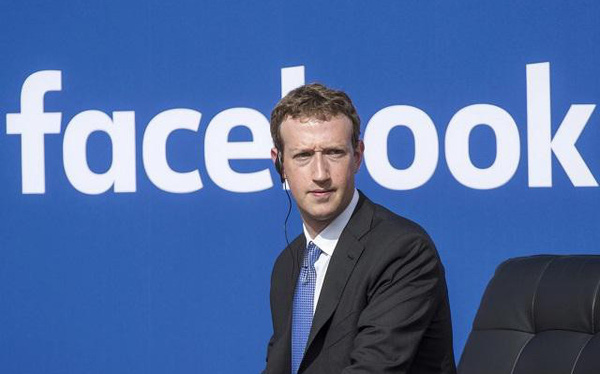Facebook is dying?
- Tram Ho
According to a New York Times commentary on October 5, the slow, steady decline is a “cloud of fear” that envelopes any company or organization that has experienced its best days, and it affects every manager’s priorities/decisions, leading to increasingly desperate attempts to find a way out.

A series of leaked documents, published by The Wall Street Journal recently, show that Facebook’s “golden age” is far away.
This kind of decline isn’t necessarily visible from the outside, but insiders can see hundreds of amazing, small signs of it every day.
Those signs include user-hostile growth hacking, frenzied glitches, paranoid governance, and a gradual loss of talent.
That’s exactly what critics are describing about Facebook.

Facebook is working to stem their steady slow decline.
During a recent Senate hearing (USA), lawmakers “turned” Antigone Davis – the head of Facebook’s global safety department with many harsh and hostile questions, which included questions about Facebook’s addictive product design and its impact on billions of users.
According to leaked documents shared with The Wall Street Journal by former Facebook product manager Frances Haugen, Facebook itself is worried that it is losing its power and influence.
The company is expected to spend a lot of time improving their toxic image and preventing users from abandoning them for more attractive alternatives.
The Wall Street Journal last week published an article describing Facebook’s internal reports, which revealed that the company has strategized and marketed itself to children and, in particular, considers children to be “” valuable but untapped object”.
This has sparked outrage, with Facebook researchers questioning whether the company has “drawn” playdates to expand its “guests” set. this potential product? Or will they focus on building elaborate growth strategies aimed at 10-year-olds?
According to the New York Times, Facebook’s appetite for young users is not about capturing a new group of users, but about stopping another bad trend. That is the fact that young people are gradually leaving Facebook.
Accordingly, the use of Facebook by teenagers in the US has been declining for many years and is expected to fall even more sharply soon. In-house researchers (Facebook) predict that the daily usage of this audience will decrease by 45% by 2023.
The researchers also revealed that Instagram, which once experienced significant growth to offset a decline in interest in Facebook, is also losing market share to faster-growing competitors like TikTok and Snapchat. . Young users now no longer post as much content on Instagram as they used to.
According to internal documents, an 11-year-old boy who participated in the survey came to the “bitter” conclusion for the company that “Facebook is only for the elderly”.
Internal reports also reveal that Facebook has spent years reversing the drop in user engagement, but in reality, likes, shares and comments on the platform have still dropped significantly. tell.
It is still too early to declare the “death” of Facebook. The company’s stock price has risen nearly 30% in the past year, driven by strong advertising revenue and a spike in users of some services during the pandemic.
Facebook is still growing in countries outside of the US and could succeed there even if the company struggles in the US. Facebook is also investing heavily in new initiatives such as virtual reality products that could turn the tide if they succeed.
But Facebook’s internal research also tells a clear story, and it’s not a happy one. Facebook’s young users are flocking to Snapchat and TikTok, while a portion of the platform’s older users are posting humorous anti-vaccination or politically controversial photos, fueling the controversy. anger or aversion. Facebook itself is well aware that its platform is used to spread hate, violence and misinformation. However, this company tried to hide that.
In conclusion, according to the New York Times, while Facebook remains today one of the most influential companies in history, with its ability to shape culture and politics globally, it is also undeniably The fact that Facebook is waning.
Source : Genk
